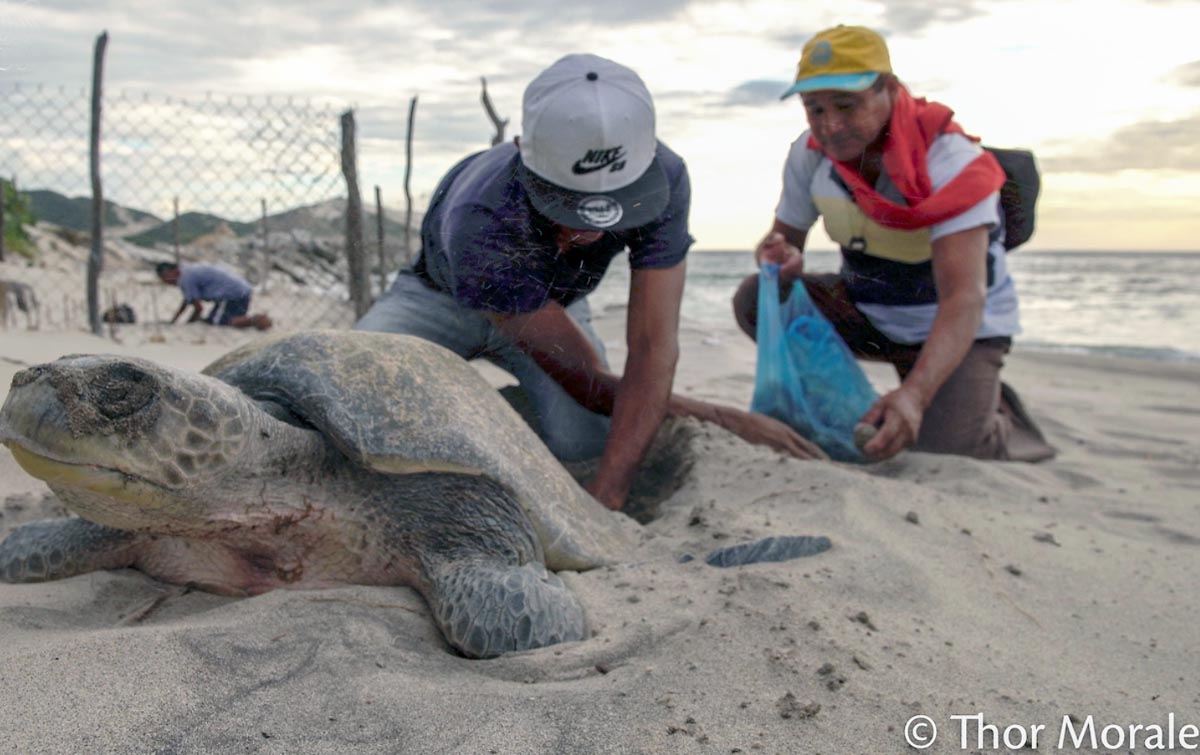‘Changing the Tide’, an effort to protect Mexican olive ridleys
The Chontal-Zapoteca corridor is one of the most important nesting areas of several species of marine turtles in Mexico. Unfortunately, it is also one of the regions where the egg of these animals is consumed the most. Culture, traditions, environment and economic deficiencies mix together to create a challenge for coastal-marine conservation in one of the most beautiful regions of our country.
‘Changing the Tide’ (Cambiando la Marea) is the story of those who go against the current, changing predation for conservation and field biology for community work and environmental education. Government, civil society and communities have joined in a heroic effort to get involved in conservation initiatives ranging from research and monitoring to patrolling beaches to prevent the looting of olive ridley eggs, a species of sea turtle.

The center of these efforts is Morro Ayuta, where every year millions of olive ridleys are recorded. On this 16km beach, conservationists met with local people who find their livelihood through the collection and sale of eggs. Successfully, some of the latter have learned about turtles and today protect them. Literally, they prevent thousands of eggs from ending up in regional market stalls.
It is exactly these heroes, along with their allies, who share a story of inspiring change, a glimpse of hope, and a testimony that environmental education has a positive effect on conservation. Fishermen, biologists and tourism services providers share their perspectives on the processes of conservation and protection of sea turtles and how local people can improve their quality of life by doing so.
The video ‘Changing the Tide’ was produced with the support of the WWF-Carlos Slim Foundation Partnership for the Center for Marine Biodiversity and Conservation and presented last week in its Mares Mexicanos (Mexican Seas) program. The turtle conservation project is one of the projects funded by the Alianza a Costa Salvaje, A.C., in Oaxaca.


